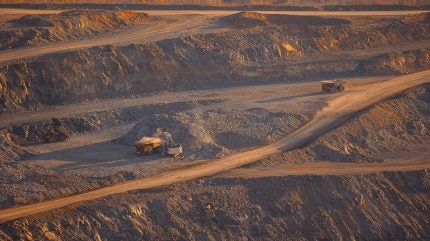
Guinea’s military government has cancelled 129 exploration permits in an effort to consolidate control of its mining resources, according to a report by Reuters, citing sources.
This decision is part of the nation’s ongoing strategy to optimise the use of its mineral assets and attract new investment.

Discover B2B Marketing That Performs
Combine business intelligence and editorial excellence to reach engaged professionals across 36 leading media platforms.
The Ministry of Mines has digitised the permit system to enhance oversight, according to a senior official, who spoke to the news agency on the condition of anonymity.
The official stated: “We have simplified it by digitising the whole system, which can now be better controlled.” The impact of the cancellation on significant investments remains unclear.
Most of the revoked permits were related to gold exploration and the assets have since reverted to state ownership, according to a second official from the Guinean ministry.
Earlier this month, Guinea retracted 51 mining licences for underutilisation or inactivity, involving bauxite, gold, diamond, graphite and iron concessions.

US Tariffs are shifting - will you react or anticipate?
Don’t let policy changes catch you off guard. Stay proactive with real-time data and expert analysis.
By GlobalDataThe country, which boasts the world’s largest bauxite reserves and is a key supplier to China, previously moved to withdraw bauxite licences from Kebo Energy and Emirates Global Aluminium (EGA), according to a separate Reuters report.
The crackdown on foreign miners is not unique to Guinea, as other military-led nations in the region, including Niger, Mali and Burkina Faso, are also seeking to maximise revenue from their mineral sectors.
EGA’s subsidiary, Guinea Alumina Corporation (GAC), has been particularly affected, amassing nearly two million tonnes of bauxite due to a suspension of operations since last year.
The Guinean Government’s aggressive stance, including the potential withdrawal of EGA’s mining licence over an unfulfilled commitment to build an alumina refinery, highlights the push for increased benefits from the country’s natural resources.
GAC’s operations have been halted since December 2024, resulting in substantial financial losses, according to a company statement.
Guinea’s Mines Minister Bouna Sylla responded to the situation, emphasising the nation’s dedication to working with investors that honour their contractual commitments.
Sylla was quoted by the news agency as saying: “This process will continue rigorously, respecting the current legal framework while ensuring the legitimate interests of all stakeholders, including Guinean investors.”
GAC, contesting the claims of unmet obligations, cited significant challenges in realising an alumina refinery project in Guinea.
The company has communicated these difficulties to the Guinean authorities, pointing to economic, technical and environmental hurdles.



